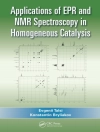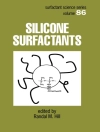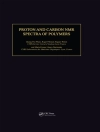Learn from this integrated approach to the management and restoration of ecosystems edited by an international leader in the field
The Handbook of Ecological and Ecosystem Engineering delivers a comprehensive overview of the latest research and practical developments in the rapidly evolving fields of ecological and ecosystem engineering. Beginning with an introduction to the theory and practice of ecological engineering and ecosystem services, the book addresses a wide variety of issues central to the restoration and remediation of ecological environments.
The book contains fulsome analyses of the restoration, rehabilitation, conservation, sustainability, reconstruction, remediation, and reclamation of ecosystems using ecological engineering techniques. Case studies are used to highlight practical applications of the theory discussed within.
The material in the Handbook of Ecological and Ecosystem Engineering is particularly relevant at a time when the human population is dramatically rising, and the exploitation of natural resources is putting increasing pressure on planetary ecosystems. The book demonstrates how modern scientific ecology can contribute to the greening of the environment through the inclusion of concrete examples of successful applied management. The book also includes:
* A thorough discussion of ecological engineering and ecosystem services theory and practice
* An exploration of ecological and ecosystem engineering economic and environmental revitalization
* An examination of the role of soil meso and macrofauna indicators for restoration assessment success in a rehabilitated mine site
* A treatment of the mitigation of urban environmental issues by applying ecological and ecosystem engineering
* A discussion of soil fertility restoration theory and practice
Perfect for academic researchers, industry scientists, and environmental engineers working in the fields of ecological engineering, environmental science, and biotechnology, the Handbook of Ecological and Ecosystem Engineering also belongs on the bookshelves of environmental regulators and consultants, policy makers, and employees of non-governmental organizations working on sustainable development.
Despre autor
Majeti Narasimha Vara Prasad is Emeritus Professor in the School of Life Sciences at the University of Hyderabad in India. He has published over 216 papers in scholarly journals and edited 34 books. He received his doctorate in Botany from Lucknow University, India in 1979. Based on an independent study by Stanford University scientists in 2020, he figured in the top 2% of scientists from India, ranked number 1 in Environmental Sciences (116 in world).












